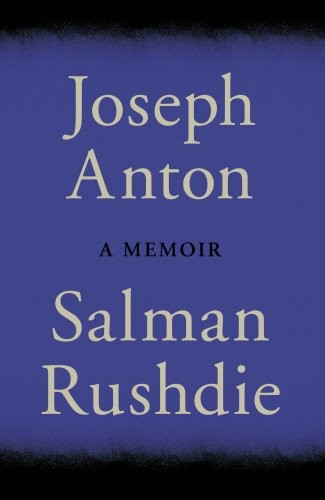Paperback
Published Nov. 10, 2012 by Jonathan Cape.

Paperback
Published Nov. 10, 2012 by Jonathan Cape.
On February 14, 1989, Salman Rushdie received a call from a journalist informing him that he had been "sentenced to death" by the Ayatollah Khomeini. It was the first time Rushdie heard the word fatwa. His crime? Writing a novel, The Satanic Verses, which was accused of being "against Islam, the Prophet, and the Quran." So begins the extraordinary story of how a writer was forced underground for more than nine years, moving from house to house, with the constant presence of an armed police protection team. Asked to choose an alias that the police could use, he thought of combinations of the names of writers he loved: Conrad and Chekhov: Joseph Anton. How do a writer and his family live with the threat of murder for over nine years? How does he go on working? How does despair shape his thoughts and actions, and how does he learn to …
On February 14, 1989, Salman Rushdie received a call from a journalist informing him that he had been "sentenced to death" by the Ayatollah Khomeini. It was the first time Rushdie heard the word fatwa. His crime? Writing a novel, The Satanic Verses, which was accused of being "against Islam, the Prophet, and the Quran." So begins the extraordinary story of how a writer was forced underground for more than nine years, moving from house to house, with the constant presence of an armed police protection team. Asked to choose an alias that the police could use, he thought of combinations of the names of writers he loved: Conrad and Chekhov: Joseph Anton. How do a writer and his family live with the threat of murder for over nine years? How does he go on working? How does despair shape his thoughts and actions, and how does he learn to fight back? In this memoir, Rushdie tells for the first time the story of his crucial battle for freedom of speech. He shares the sometimes grim, sometimes comic realities of living with armed policemen, and the close bonds he formed with his protectors; of his struggle for support and understanding from governments, intelligence chiefs, publishers, journalists, and fellow writers; and of how he regained his freedom. What happened to Salman Rushdie was the first act of a drama that is still unfolding--From publisher description.